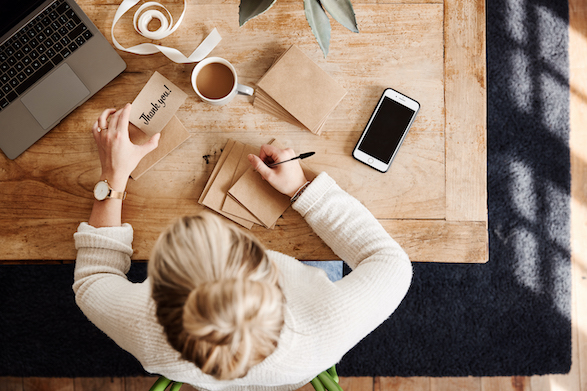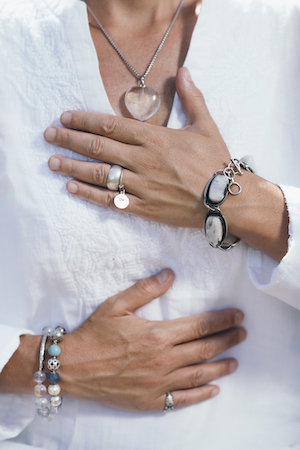At Home
Gratitude: A Mindset
 You’ve got a million things on the go. You have to bring the car in to get the tires swapped, and you just got a call to pick your child up from school. You have a presentation to prepare for, and your in-laws are coming for the weekend. Who has time to stop and smell the roses? If this sounds like you, maybe you also feel like thankfulness has gone AWOL from your life. Well, it doesn’t, and shouldn’t have to be that way. Gratitude is an essential part of our well-being.
You’ve got a million things on the go. You have to bring the car in to get the tires swapped, and you just got a call to pick your child up from school. You have a presentation to prepare for, and your in-laws are coming for the weekend. Who has time to stop and smell the roses? If this sounds like you, maybe you also feel like thankfulness has gone AWOL from your life. Well, it doesn’t, and shouldn’t have to be that way. Gratitude is an essential part of our well-being.
An attitude of gratitude has been shown to improve our sleep, boost our immunity and lower our stress, among other benefits. So, if being grateful promotes physical and mental well-being, why aren’t we all hooked?
Unfortunately, humans have a predisposition for seeing the negative, so it’s not surprising that many of us find it difficult to look on the bright side. They say it has something to do with the fact that cave dwellers were often on high alert, constantly scanning their environments for threats. But I digress.
To get past this instinct, we need to practice and cultivate our own gratitude.
Practising gratitude isn’t just about manners. Though, I must say that I’m forever encouraging people to say thank you. These magic words are meant to express our appreciation, but muttering them out of obligation or reflex isn’t meaningful. We need to be present and mindful when we say them. Furthermore, being grateful shouldn’t be an obligatory sentiment we express only on specific holidays.

So, where do we begin? Well, consider the following premise: Less is more. By having a minimalist life, we learn to appreciate what we already have. If we are continually trying to fill our dwindling reserves of happiness with things (which will forever necessitate more items), where does it end? Having the latest gadgets, keeping up with the Joneses, and those “retail therapy” outings provide us with fleeting moments of joy. Instead of trying to buy happiness, we should be focussing on the things that money can’t buy. Why not look to experiences and memories instead, to fill said reserves? Why not use our senses and genuinely appreciate the experience of listening to our favourite music or petting our dog’s soft furry ears?
Let’s shift our focus to empathy for a moment. When we hear about a family losing their home to a fire or a child fighting a terrible disease in the news, we may suddenly appreciate our own home and our family’s health. Even when we go through a trying time in our own lives, cleaning the house, for example, becomes secondary because it doesn’t matter in the grand scheme of things. But why does something bad have to happen to remind us to be grateful for what we already have?

I do my best to be grateful because it brings me comfort and calm. I’m not one for jotting down all the things I’m thankful for like some experts recommend. Instead, I will mentally go through my day while I lie in bed and make my list that way. It’s a great way to fall asleep! I also like to say a mental thank you when I get a really good parking spot or when my favourite doughnut shop has my preferred treat in the display. As a result, I’ve developed a habit of being grateful for the smallest of things. And I feel happier.
I also make sure to go out of my way to express my appreciation to people. Once, when our dog’s food delivery was wrong, the driver went above and beyond to correct the mistake. I thanked her profusely with words like “I really appreciate your efforts. It means a lot to us. We’re really grateful you were able to fix this tonight.” It costs us nothing to acknowledge, appreciate, and thank someone, and the benefits are doubled because the other person feels good too.
So, be grateful for the picture-perfect scene of snow-covered trees. Be grateful for your friend’s infectious laugh. Be grateful for the warmth of a cup of tea. Be grateful for your ability to experience life. In time, this mindset will become a habit, and you may come to realize that you do have everything you need. That’s gratitude. Mission accomplished.










